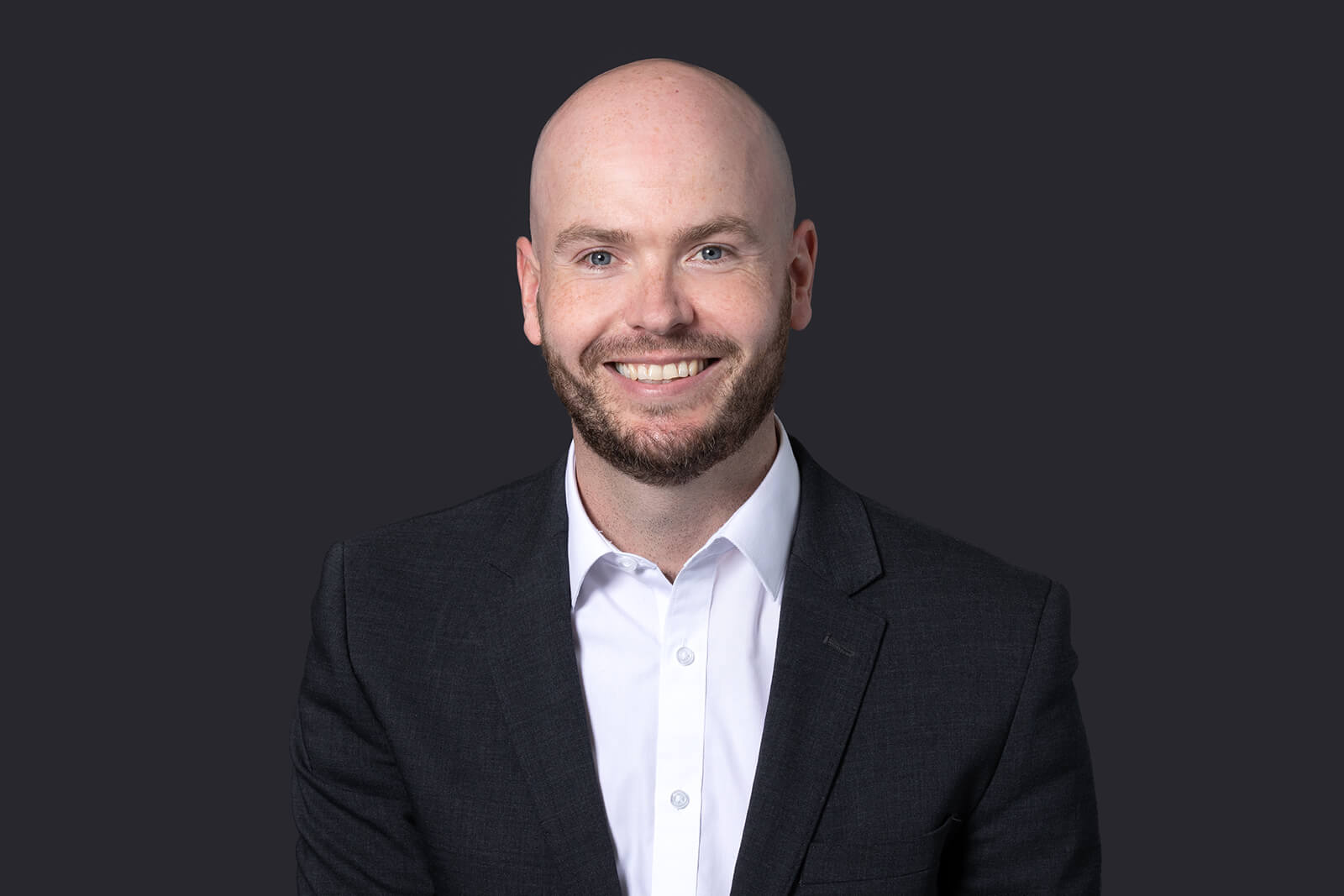Browne Jacobson is proud to offer a team of specialist lawyers providing legal services to NHS bodies, local authorities, commissioners and independent sector providers of mental health services.
Our team has a wealth of experience in mental health law, making us well-equipped to provide expert advice on a broad range of legal issues, including detention and treatment of patients under the Mental Health Act, the interaction between the Mental Health and Mental Capacity Acts, Tribunal rules and procedures, organisational policies and mental health related inquests.
We understand the complexities of mental health cases and work closely with our clients to provide tailored advice and representation that meets their specific needs. Our team has been involved in many noteworthy cases involving both the Mental Health and Mental Capacity Acts. We also offer an out-of-hours service to care providers, enabling us to provide emergency advice and assistance on care and treatment issues whenever they arise.
Rebecca Fitzpatrick leads our team, and she has been described by Chambers & Partners as a pre-eminent mental health lawyer. Our work in this area has earned us high rankings in both Chambers & Partners and the Legal 500.
"They manage to explain the law clearly and effectively, providing calm efficiency in a wide range of situations in the field of Mental Health Legislation, ranging from advice about Mental Health Act papers to navigating the whole Court process from application to decision."
Our mental health law services
We have a dedicated team of mental health law specialists who cater to a broad range of clients across the country. Our team comprises of individuals with unrivalled knowledge and expertise of the sector, including a mental health tribunal judge and part-time coroners.
We are quick to respond to any problems that our clients need assistance with. We are known for our high quality, pragmatic advice that is tailored to our client’s specific needs.
We strive to provide our clients with the best possible service and support and our team of experts is always on hand to provide guidance and assistance whenever it is needed – including out of hours if required.
We provide expert advice and representation to both NHS and independent providers of mental healthcare services. Our team has extensive experience of working with some of the largest and most prominent mental health providers in the country.
We also act for mental health commissioners and local authorities.

Our team of specialist lawyers provide comprehensive advice and assistance on all aspects of mental health law. We offer guidance on the interpretation and application of the Mental Health Act to ensure that healthcare providers are complying with its provisions when detaining and treating patients with mental health issues. Our expertise extends to both adults and children with mental health needs, as well as restricted patients. We can also provide advice on defending claims for unlawful detention.
There is often a need to assess a mental health patient’s capacity to make decisions about their care and treatment. The Mental Capacity Act provides the legal framework for assessing capacity and making decisions on behalf of individuals who lack capacity to make decisions themselves. Our lawyers specialise in both mental health and mental capacity law and can provide valuable advice on how these laws operate and interact. We can offer guidance to healthcare providers on assessing capacity for various different decisions, and how to document assessments and best interests decisions effectively.
We also advise on deprivation of liberty and safeguarding issues.

We understand that inquests into the deaths of mental health patients can be challenging and difficult for all parties involved. Such inquests often take place before a jury and engage Article 2 of the European Convention on Human Rights, making them even more complex.
Our team of lawyers provide comprehensive advice and support to healthcare providers involved in inquests concerning mental health patients. We advise on evidence, risk, likely outcomes and any reputational damage. We are committed to supporting staff who are required to give evidence, by assisting them in preparing their witness statements and providing them with a clear understanding of the inquest process. This ensures they are well-prepared and less anxious when they go into court.
In addition, we can help healthcare providers to develop organisational learning strategies to improve patient safety and mitigate Prevention of Future Deaths reports.
The mental health tribunals in England and Wales are responsible for hearing applications and references concerning both restricted and unrestricted mental health patients. They have jurisdiction to determine whether patients can be released from detention under the Mental Health Act. In preparation for the hearing, written reports from the patient’s treating team must be prepared, and clinicians and care staff may be required to give evidence at the hearing.
Our specialist team, which includes a First-tier Tribunal Judge, is well-equipped to provide healthcare providers with comprehensive advice on all aspects related to mental health tribunals. We offer guidance on tribunal powers and remit, provide assistance with tribunal rules and procedures, and offer representation and advocacy at tribunal hearings if required. Additionally, we can provide advice and representation in relation to appeals to the Upper Tribunal.

Having well-defined policies and procedures in place for mental health treatment is essential for healthcare providers. It ensures that patients receive high-quality care, are better protected, and that the provider is compliant with relevant laws and guidance.
Our team of mental health lawyers can assist healthcare providers in developing comprehensive and clear policies on a wide range of topics, including but not limited to, information for patients and carers, informal patients, leave from hospital, restrictive interventions, use of mobile phones and computer devices, and visiting patients in the hospital. We will ensure that these policies comply with legal requirements and best practices. We can also review and advise on existing organisational policies to ensure that they are up-to-date and compliant with the latest guidance and legislation.

We offer comprehensive training to staff who are involved in the care and treatment of mental health patients, including psychiatrists, mental health nurses, approved mental health practitioners and hospital managers.
We understand that different staff groups can have unique requirements, and we therefore offer bespoke training packages that can be delivered either virtually or in-person. Our lawyers are highly experienced and have a friendly, down-to-earth style that makes learning enjoyable and engaging.
We also run a mock inquest training course, which is essential for clinicians and healthcare professionals seeking to understand the inquest process. The course is delivered virtually by legal experts over the course of six separate sessions. It covers the entire inquest process – from reporting deaths and certification through to writing reports for the coroner and giving oral evidence in court. Module 4 on this course specifically deals with inquests in a mental health setting.

Browne Jacobson runs a regular Shared Insights forum, which is designed for those working within NHS organisations, local authorities, independent health and social care providers and those specialising in mental health. Each session is an hour long, delivered via MS Teams and focusses on a pressing issue or sector challenge. The forum is chaired by a Browne Jacobson lawyer and features a panel of guest speakers.
Our previous sessions have covered a range of key issues that impact upon the mental health sector, such as the challenges caused by disordered eating in education, health and social care settings, inquests in relation to deaths in custody and the Patient Safety Incident Response Framework.
To find out more about Shared Insights and to join a future session, please visit our Shared Insights hub.
We have a dedicated team of mental health law specialists who cater to a broad range of clients across the country. Our team comprises of individuals with unrivalled knowledge and expertise of the sector, including a mental health tribunal judge and part-time coroners.
We are quick to respond to any problems that our clients need assistance with. We are known for our high quality, pragmatic advice that is tailored to our client’s specific needs.
We strive to provide our clients with the best possible service and support and our team of experts is always on hand to provide guidance and assistance whenever it is needed – including out of hours if required.
We provide expert advice and representation to both NHS and independent providers of mental healthcare services. Our team has extensive experience of working with some of the largest and most prominent mental health providers in the country.
We also act for mental health commissioners and local authorities.

Our team of specialist lawyers provide comprehensive advice and assistance on all aspects of mental health law. We offer guidance on the interpretation and application of the Mental Health Act to ensure that healthcare providers are complying with its provisions when detaining and treating patients with mental health issues. Our expertise extends to both adults and children with mental health needs, as well as restricted patients. We can also provide advice on defending claims for unlawful detention.
There is often a need to assess a mental health patient’s capacity to make decisions about their care and treatment. The Mental Capacity Act provides the legal framework for assessing capacity and making decisions on behalf of individuals who lack capacity to make decisions themselves. Our lawyers specialise in both mental health and mental capacity law and can provide valuable advice on how these laws operate and interact. We can offer guidance to healthcare providers on assessing capacity for various different decisions, and how to document assessments and best interests decisions effectively.
We also advise on deprivation of liberty and safeguarding issues.

We understand that inquests into the deaths of mental health patients can be challenging and difficult for all parties involved. Such inquests often take place before a jury and engage Article 2 of the European Convention on Human Rights, making them even more complex.
Our team of lawyers provide comprehensive advice and support to healthcare providers involved in inquests concerning mental health patients. We advise on evidence, risk, likely outcomes and any reputational damage. We are committed to supporting staff who are required to give evidence, by assisting them in preparing their witness statements and providing them with a clear understanding of the inquest process. This ensures they are well-prepared and less anxious when they go into court.
In addition, we can help healthcare providers to develop organisational learning strategies to improve patient safety and mitigate Prevention of Future Deaths reports.
The mental health tribunals in England and Wales are responsible for hearing applications and references concerning both restricted and unrestricted mental health patients. They have jurisdiction to determine whether patients can be released from detention under the Mental Health Act. In preparation for the hearing, written reports from the patient’s treating team must be prepared, and clinicians and care staff may be required to give evidence at the hearing.
Our specialist team, which includes a First-tier Tribunal Judge, is well-equipped to provide healthcare providers with comprehensive advice on all aspects related to mental health tribunals. We offer guidance on tribunal powers and remit, provide assistance with tribunal rules and procedures, and offer representation and advocacy at tribunal hearings if required. Additionally, we can provide advice and representation in relation to appeals to the Upper Tribunal.

Having well-defined policies and procedures in place for mental health treatment is essential for healthcare providers. It ensures that patients receive high-quality care, are better protected, and that the provider is compliant with relevant laws and guidance.
Our team of mental health lawyers can assist healthcare providers in developing comprehensive and clear policies on a wide range of topics, including but not limited to, information for patients and carers, informal patients, leave from hospital, restrictive interventions, use of mobile phones and computer devices, and visiting patients in the hospital. We will ensure that these policies comply with legal requirements and best practices. We can also review and advise on existing organisational policies to ensure that they are up-to-date and compliant with the latest guidance and legislation.

We offer comprehensive training to staff who are involved in the care and treatment of mental health patients, including psychiatrists, mental health nurses, approved mental health practitioners and hospital managers.
We understand that different staff groups can have unique requirements, and we therefore offer bespoke training packages that can be delivered either virtually or in-person. Our lawyers are highly experienced and have a friendly, down-to-earth style that makes learning enjoyable and engaging.
We also run a mock inquest training course, which is essential for clinicians and healthcare professionals seeking to understand the inquest process. The course is delivered virtually by legal experts over the course of six separate sessions. It covers the entire inquest process – from reporting deaths and certification through to writing reports for the coroner and giving oral evidence in court. Module 4 on this course specifically deals with inquests in a mental health setting.

Browne Jacobson runs a regular Shared Insights forum, which is designed for those working within NHS organisations, local authorities, independent health and social care providers and those specialising in mental health. Each session is an hour long, delivered via MS Teams and focusses on a pressing issue or sector challenge. The forum is chaired by a Browne Jacobson lawyer and features a panel of guest speakers.
Our previous sessions have covered a range of key issues that impact upon the mental health sector, such as the challenges caused by disordered eating in education, health and social care settings, inquests in relation to deaths in custody and the Patient Safety Incident Response Framework.
To find out more about Shared Insights and to join a future session, please visit our Shared Insights hub.
Frequently asked questions
The Mental Health Act 1983 is the primary piece of legislation in the UK that provides the legal framework for the assessment, detention, treatment and rights of people with a mental health disorder. It was last updated in 2007. The Act sets out the circumstances in which someone can be detained in hospital for assessment and treatment of their mental health, and the rights and safeguards that must be in place to protect the person's interests.
The Mental Health Act Code of Practice is a document that provides guidance and advice on how the Mental Health Act should be applied in practice. The Code safeguards patients’ rights, ensures compliance with the law and must be considered by health and social care professionals. The Code is used by patients in hospital and those in the community, their families, carers and advocates. It is designed to ensure that anyone experiencing mental disorder and being treated under the Act gets the right care, treatment and support.
The Code of Practice sets out the guiding principles that should always be considered when making decisions in relation to care, support or treatment provided under the Act. It also provides detailed guidance on issues such as the assessment and detention of patients; care, support and treatment in hospital; discharge from hospital and the provision of aftercare; and additional considerations for specific patients, such as children, those with learning disabilities or autistic spectrum disorders and patients concerned with criminal proceedings.
The Mental Health Act and the Mental Capacity Act are two separate pieces of legislation. The Mental Health Act is concerned with the detention, assessment, and treatment of people with a mental disorder that pose a risk to their own health or safety or to others. It sets out the legal framework for the compulsory admission of people to hospital for assessment and treatment of their mental health, and the safeguards and rights that must be in place to protect their interests.
The Mental Capacity Act, on the other hand, is concerned with decision-making for people who lack the capacity to make decisions for themselves. It sets out the legal framework for assessing capacity and making decisions on behalf of people who lack capacity, as well as the principles that underpin such decision-making. The Mental Capacity Act is designed to empower people to make their own decisions wherever possible, and to ensure that decisions made on their behalf are in their best interests.
The Mental Health Act and the Mental Capacity Act are complex pieces of legislation that can be difficult to navigate. However, it is vital that healthcare professionals understand the differences between them to ensure that patients receive the appropriate care and support. Our team of legal experts specialise in both mental health and mental capacity law and can provide guidance and advice on the operation and interaction of the two Acts. With our expertise, healthcare professionals can be confident that they are providing the best possible care and support to their patients, and that patients' rights and interests are protected.
Featured experience
Clarifying the legality of remote Mental Health Act assessments during Covid 19
We represented Devon Partnership NHS Trust in the High Court case of Devon Partnership NHS Trust v SSHSC [2021] EWHC 101 (Admin).
The case considered the legality of remote Mental Health Act (MHA) assessments during the Covid 19 pandemic.
The court clarified that the phrases “personally seen” in s. 11(5) and “personally examined” in s. 12(1) of the MHA require the physical attendance of both the Approved Mental Health Practitioner and the s.12 Doctor when assessing the patient for detention under the Act.
Determining the scope of the First-tier (Mental Health) Tribunal’s powers
We represented Derbyshire Healthcare NHS Foundation Trust in the Upper Tribunal case of PQR v Derbyshire Healthcare NHS Foundation Trust [2023] UKUT 195 (AAC).
The Upper Tribunal agreed with our analysis of the First-tier (Mental Health) Tribunal’s jurisdiction and confirmed that its powers are limited to granting or refusing relief to individuals liable to be detained.
The case clarified that the First-tier Tribunal does not have the power to decide on the validity of a patient’s underlying detention, which must instead be addressed in the High Court.
Clarifying the legality of remote assessments for community treatment orders (CTOs) and renewals of detention
We acted for Derbyshire Healthcare NHS Foundation Trust in the High Court case of Derbyshire Healthcare NHS Foundation Trust v SSHSC [2023] EWHC 3182 (Admin).
This case clarified that examinations of patients under sections 20(3) (renewal of section for a patient admitted to hospital for treatment), 20(6) (renewal of guardianship application) and 20A(4) (renewal of CTO) of the Mental Health Act require in-person physical attendance on the patient by the responsible clinician or appropriate practitioner, and remote assessments in these situations are unlawful.
Inquest into the death of a detained mental health patient
We represented an independent mental health provider in a high-profile and complex inquest related to the tragic death of a detained patient who took her own life. The case was heard before a jury, and Article 2 of the European Convention on Human Rights was engaged. The inquest brought to light the issue of patients with complex needs being detained in placements far from their homes and families due to a shortage of specialist beds locally. This issue is of national importance and received significant media attention. The Coroner highlighted it to the Secretary of State for Health, emphasising the need for action to be taken.
Testimonials
"Browne Jacobson deliver exceptional value for money. We also find their approach to dealing with complex and matters beyond the day-to-day internal process to be first class."
"They can handle the most novel and unusual cases."
"The team is so easy to contact and there is always someone at hand available to help."
What our people say
Working in mental health and mental capacity law
Rebecca Fitzpatrick, Partner
"The team I head helps the NHS to save the lives of vulnerable adults and children in urgent medical treatment cases which gives me a lot of satisfaction."Find out more

Key contacts

Rebecca Fitzpatrick
Partner

Mark Barnett
Partner

Ed Pollard
Partner










































